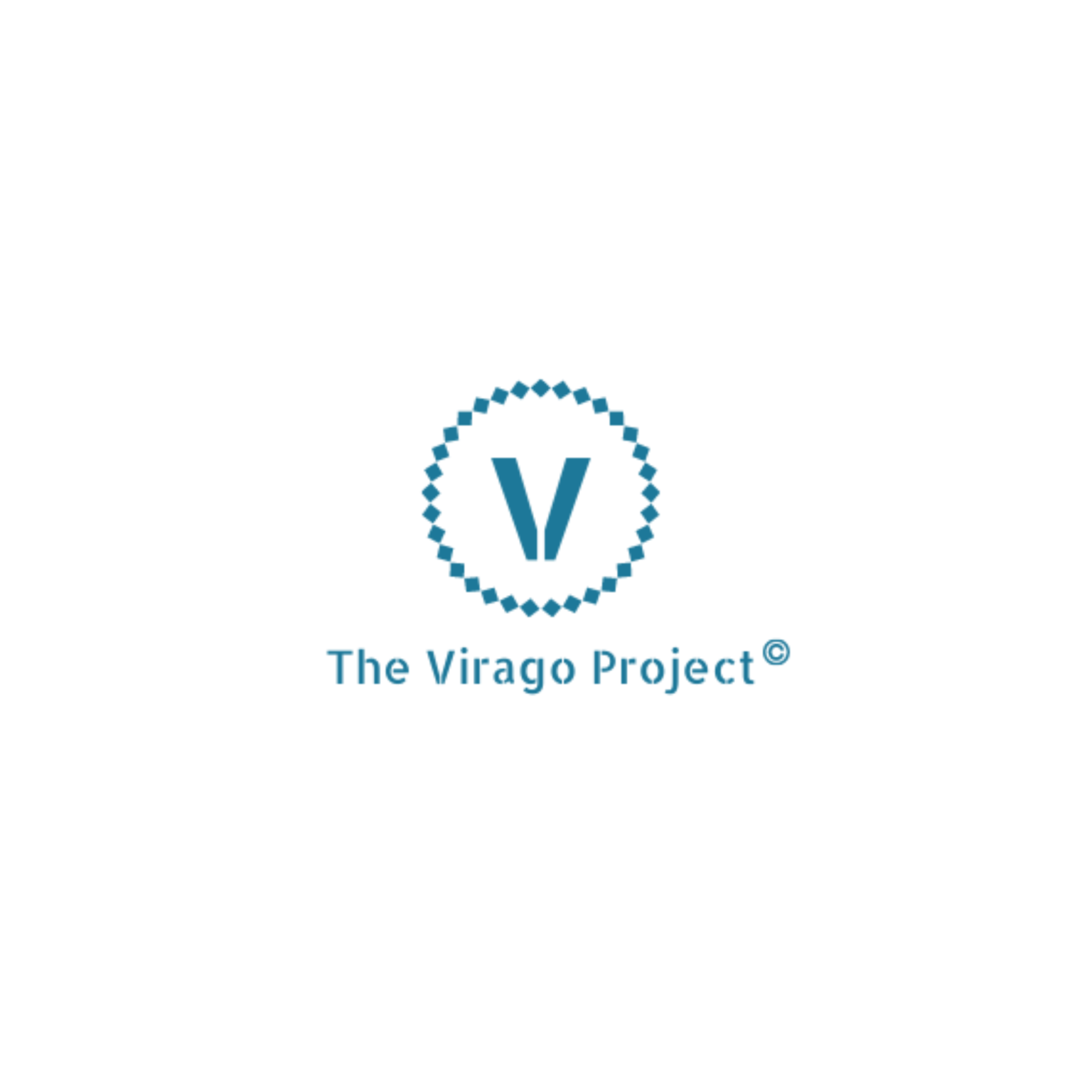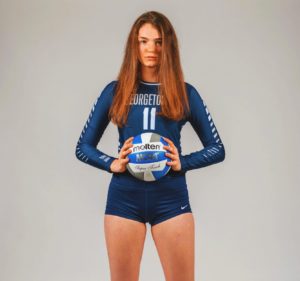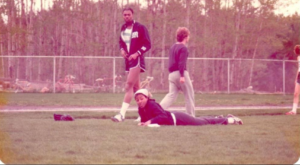As sportswomen, there are many unique stressors on our bodies that we must account for when we eat. Staying fueled is something to consider beyond the standard breakfast, lunch, and dinner, and knowing what and when to eat is key to performing well as an athlete.
Good nutrition is something to employ before and after practices, the night before competitions, during exercise, and pretty much throughout each and every day! Our bodies can do incredible things but in order to push ourselves physically, we must be aware of what we can do on a daily basis to ensure our bodies are getting the nutrition it needs.
In order to discover some tips about how to fuel properly both around athletic events and in day to day life, I interviewed Lauren Massey, who received her B.S in Nutrition and Dietetics at Auburn University. Lauren worked at Vanderbilt Medical Center in the pediatric diabetes clinic, the adult and pediatric cystic fibrosis clinics, and with pediatric in-patients before becoming a stay at home mom to a family of young athletes.
Here is some of her advice:
I have known a lot of athletes who struggle to eat before a race or game. Do you have any suggestions for pre-race/game or even pre-practice foods?
“When it comes to fueling before practices and races or games, the main two factors to consider are what you are eating and when you are eating it. Liquids are digested and absorbed very quickly, as are simple carbohydrates, while fatty foods can take several hours to be digested and can leave you feeling heavy and unsettled. Protein and complex carbohydrates are digested and absorbed at a fairly steady rate, making them great choices in the hours leading up to a practice or competition. A basic knowledge of this can help you plan what you want to eat. Ideally, your meal should be eaten 2-4 hours before your practice or event and should be easily digested. Think small and simple! Don’t worry if you are missing some of the food groups in this meal as most of the nutrients you will be utilizing actually come from what you ate the day before.”
“One of the best ways to know what will work on race day is to experiment with different meals and time your practices to simulate race day. If oatmeal or whole grain breads upset your stomach, try rice-based foods or white bread/crackers. If a banana sits too heavy, try melons or berries instead. If your stomach is growling before the practice or race begins, try adding a spoonful of nut butter or a hard-boiled egg next time. Once you find a plan that works, stick with it!”
“One last thought…don’t forget about the importance of hydration around the clock. Make sure to be sipping on water every 15 minutes prior to a big event rather than chugging a large amount at one time. It is no fun to feel water sloshing with every stroke, pedal, step, jump, or kick, nor do you want to feel the beginnings of dehydration early in a competition.”
(I always struggled to fuel properly, because my races were very early in the morning, and because I was often too nervous to eat much. Nowadays I tend to eat toast/oatmeal and some fruit three hours before I race and then snack on some pop tarts (which sounds bad but is perfect for quick carbs) and Gu or Gu Chews as I get closer to start time. That said pre race food is often very personal- I even had a teammate who would wake up at 4am before every race to eat a hamburger, so at the end of the day you should eat whatever works for you!)
When do athletes need electrolytes and how should they get them (recommended sports drink/foods?)
“Electrolytes are extremely important minerals that your body needs at a cellular level to function at its best.” Most people get plenty of electrolytes from just the salt they put on their food, but since we athletes sweat out so many necessary nutrients we often need to take in sports drinks like gatorade or coconut water or eat specific foods to replenish. “Sodium, potassium, and calcium, magnesium, and chloride are excreted in your sweat, so they need to be replaced based on the intensity of your exercise and the amount of sweat you produce. Although each individual has a unique sweat profile, general rules for replacing electrolytes are as follows:
- Water is the beverage of choice for hydration.
- Sports drinks are appropriate during and after exercise in warm weather, during and after exercise sessions lasting longer than an hour, and when participating in multiple workout sessions in one day.
- Ingredients in a good sports drink include a variety of simple sugar sources (to maximize absorption), sodium, potassium, magnesium. If you are purchasing sports drinks, check to be sure they are free of food dye and preservatives. Many great recipes can be found on-line for homemade sports drinks.
- Aim to drink 16-20 ounces of fluid every hour during intense exercise, or 4 gulps every 15 minutes. Continue rehydrating for 1-2 hours after exercise is complete.”
What are your favorite healthy post workout snacks?
“It is really difficult to pick my favorite post-workout snacks as the possibilities are endless! In the first 30-45 minutes after exercising, your bloodstream is circulating high levels of the enzymes needed to absorb carbohydrates and protein, so this is the window of opportunity to speed up your recovery. To replenish glycogen stores and provide protein for muscle recovery, your snack should have a ratio of 3-4 grams of carbohydrate to 1 gram of protein. This can quickly be accomplished with a glass of chocolate milk or a good protein bar and a sports drink, or here are some other suggestions:
Salted pretzels and hummus, graham crackers and peanut butter, bagel with cream cheese, smoothie and granola or nuts, fruit and yogurt, granola bar or fig bar, cheese and crackers, whole grain toast and eggs”
Is it better for athletes to eat a few big meals throughout the day, or to snack regularly?
Most athletes are unable to eat three meals each day at a perfectly scheduled time, and many of them need quite a few calories to fuel their endeavors. Having snacks throughout the day is a great way to accommodate the specific needs of timing for fueling and refueling as well as to fit in all the important types of food their bodies need daily.
In your opinion in what situations (if any) should athletes consider dieting?
“Well, ‘dieting’ can mean a lot of things to a lot of people. Most Americans view it as a way of restricting calories or specific types of food in order to achieve weight loss. Active children and adolescents do not need to worry about dieting to lose weight. It is very normal for them to grow at different rates, and often their bodies store extra fat to use as fuel for growing. Adult athletes who are concerned about their weight should use a combination of exercise, drinking plenty of water, and making as many healthy food choices as they can to achieve and maintain a healthy weight. Strict calorie cutting may lead to initial weight loss, but it ultimately backfires and makes it difficult both to maintain a healthy weight and to lose additional weight. It is a great idea to meet with a physician or a registered dietitian for guidance on weight loss.”
What are some signs that an athlete needs to change their diet, and how do you know if those changes are helping?
“Athletes might consider changing their diets if they are continually fatigued, have difficulties with bowel function (chronic constipation or loose bowel movements), are prone to injuries, or find themselves getting sick frequently. A physician, registered dietitian, or homeopathic health care provider can help assess these issues. There are various types of bloodwork or other tests that can detect many nutrient deficiencies. For example, many endurance athletes are prone to iron-deficiency anemia, which can decrease VO2 Max as well as overall energy and performance. Bloodwork to test both iron and ferritin (stored iron) levels can pinpoint the problem, supplements can be added to the diet, and the problem can usually be resolved.”
What are the most common nutritional mistakes that you see athletes make?
“The most common nutritional mistakes that I see athletes make are inadequate hydration, forgetting to refuel after a workout, restricting calories when increased calories are needed to sustain both exercise efforts and recovery, and trying fad diets that promise easy, immediate results but actually leave out major nutrient groups.”
What are some struggles faced by vegetarian/vegan athletes, and what are some solutions? (example: ways to make up for a vegetarian iron deficiency)
“Vegan and vegetarian athletes often excel in consuming a variety of nutrients from a variety of sources. However, they are at risk for inadequate intake of some nutrients that are found mainly or exclusively in animal products. The main macronutrient of concern is protein, and the micronutrients of concern are iron, zinc, calcium, iodine, vitamin D, and especially vitamin B12. Because vitamin B12 is only found in animal sources, vegetarians/vegans should either take a B12 supplement or eat food fortified in B12 regularly. They should also make sure they are eating high quality sources of protein daily from foods like tempeh, lentils, tofu, quinoa, nuts, and beans. Follow this link for a helpful sports nutrition article for vegetarians/vegans. https://www.verywellfit.com/vegetarian-vegan-athletes-myths-4155829”



